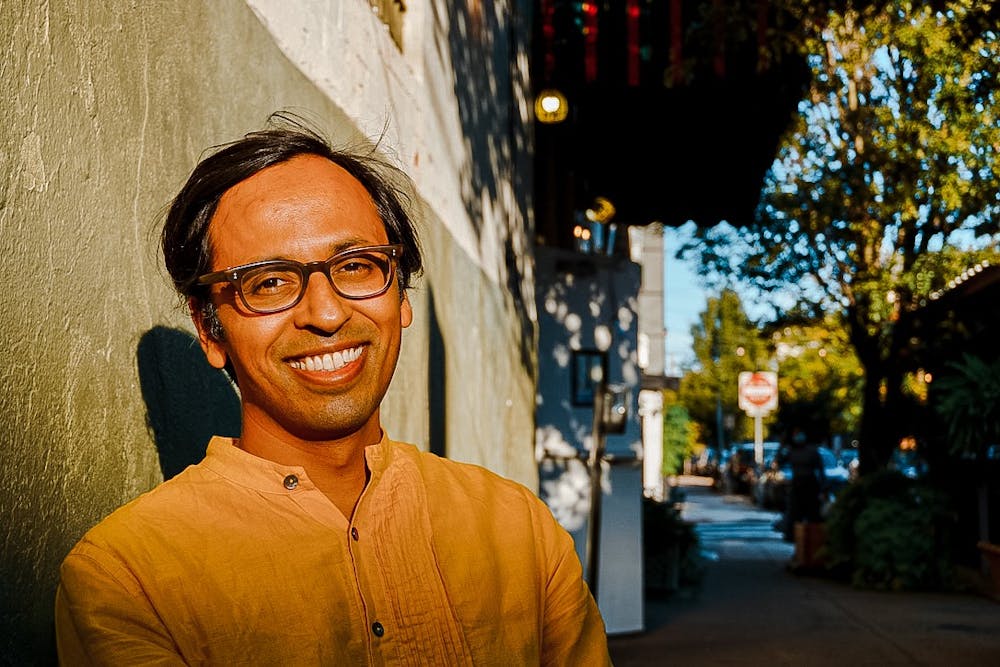The first thing State Sen. Nikil Saval (D–01) learned from watching his recently immigrated Indian parents run a pizza parlor in Santa Monica was that the restaurant industry is hard. The second thing he learned was that solidarity among working–class people of color—not top–down organizing—is what gets shit done.
“[My parents] had people from many different backgrounds across the citizen spectrum working in their kitchen. Papers or no papers, it didn’t make a difference, and my parents successfully procured documents for people who didn’t have them,” Saval says. “There shouldn’t be any barriers to entry … We need more freedom of movement.”
As glib as it sounds, food is central to Saval’s political compass. The former n+1 editor turned organizer cut his teeth with UNITE HERE Philly, where he staged boycotts for hospitality workers in the city’s stadium and airports before doing grassroots work for Bernie Sander’s 2016 presidential campaign and Reclaim Philly. And as for his politicking, he moves like a diligent line cook, focusing on precision and utility over high–profile, but impossible, fixes.
Case in point: His latest piece of legislation is a Fair Chance Housing bill that would bring the ethos of Ban the Box laws to real estate so that people re–entering society from the prison system have a shot at finding housing. Everything Saval advocates for—from a Green New Deal for schools to mandated paid parental leave—stems from a worker consciousness that was refined in kitchens and during demonstrations, over meals in mom–and–pop restaurants and piles of takeout containers.
“Good food takes time. It takes work. It takes a lot of labor and investment and love. The people who deserve the most investment in the [hospitality] industry are the people that make and serve our food,” he says.
Saval’s district spans an array of interwoven immigrant communities in South Philly, from Cambodian and Vietnamese enclaves in Little Saigon to alternating blocks of Mexican and Italian restaurants in the Italian Market and along East Passyunk. His favorite things to talk about? The eateries that sustained his campaign, and now his first term in office, from dosas in Harrisburg to a Columbus Boulevard pizza joint, whose Indian–style pizzas remind him of recipe testing with his parents.
Street asked Saval to give us a tour of his district through the establishments he can’t live without. What transpired is a love letter to banh mis, pupusas, and chefs who go the extra mile for their blocks—all in Saval’s own words, of course.
Little Sicily Pizza II
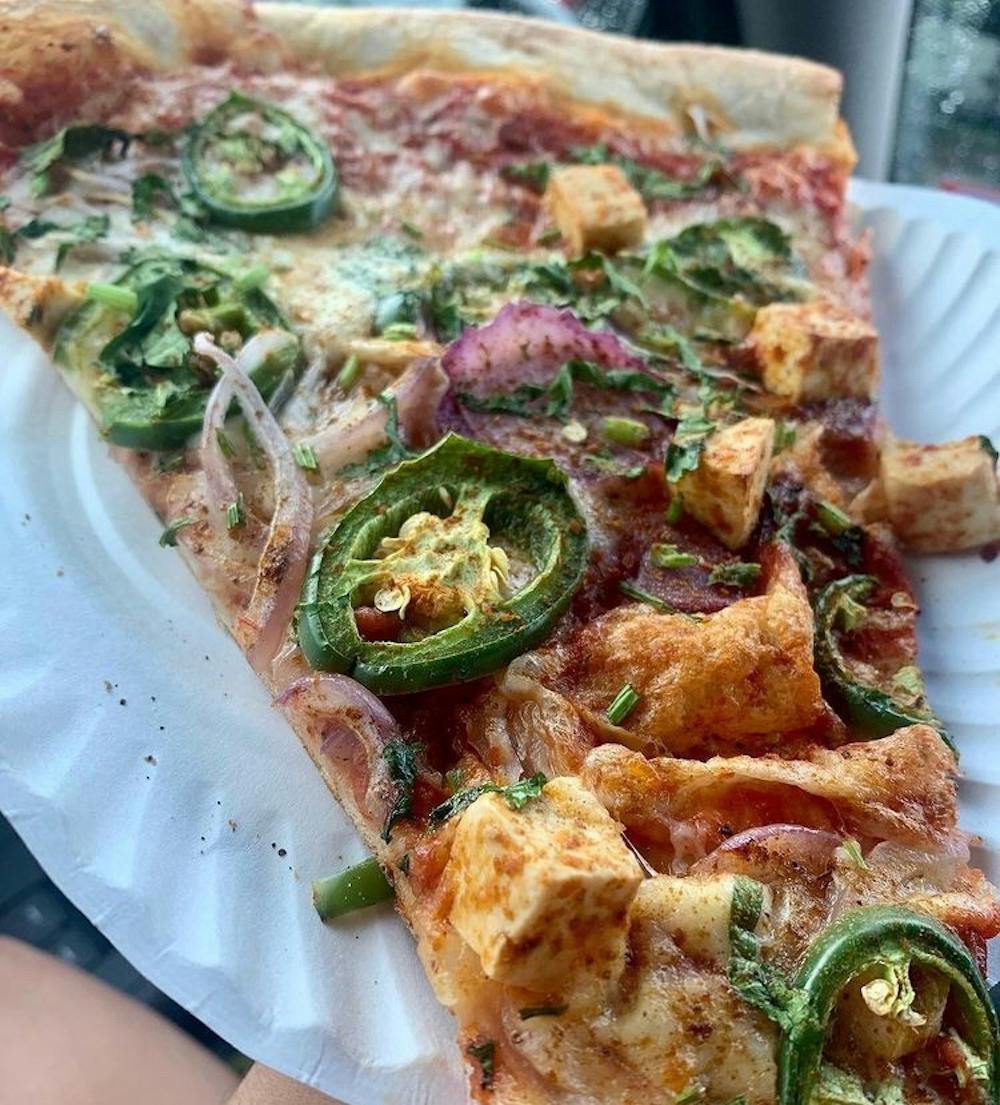
My parents owned a pizza restaurant, and so many pizza establishments sustained our family throughout the pandemic: Gigi’s, Chiquita’s, Sally’s, Santucci’s, Angelo’s, Little Italy 2, Square Pie, Pizzeria Beddia, Pizza Shackamaxon, Pizza Plus, Pizza Brain. But I reserve a special place in my heart for Little Sicily II, an unassuming spot in a gas station plus strip mall just before the entrance to I–95 off Columbus Boulevard, which has the usual pizzas and cheesesteaks.
But also, because it is Indian owned, [it] has a special “spicy menu,” crowned by a magisterial masala pizza. Studded with cubes of paneer and dusted with cilantro, this is the syncretistic immigrant pizza experience of one’s dreams, unearthing memories from childhood of my parents experimenting with flavors and pizza in an industrial kitchen with the same goal.
Location: 1608 S. Columbus Blvd.
Hours: Sun. — Thurs. 11 a.m. — 8 p.m.; Fri. — Sat. 11 a.m. — 9 p.m.
Artisan Boulanger Patissier
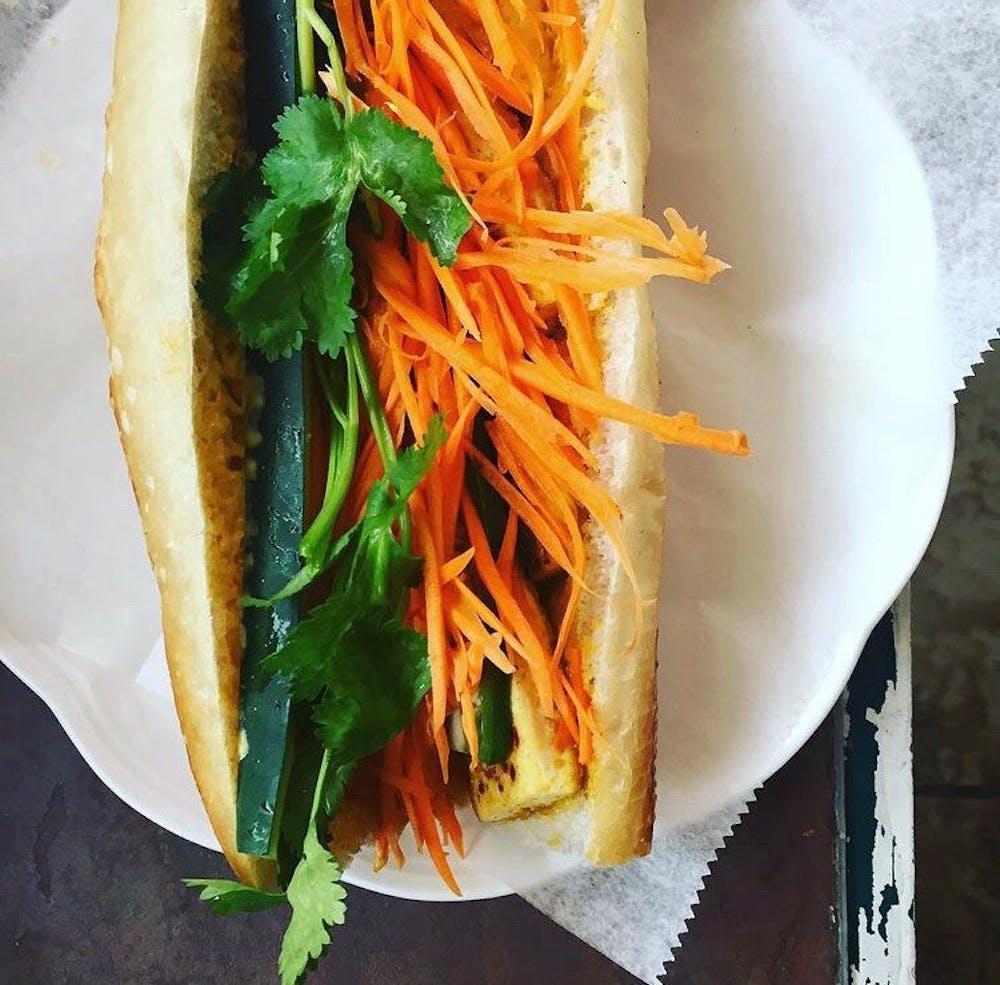
Excellent tofu banh mis abound throughout South Philadelphia, but my favorite is at Artisan Boulanger Patisserie, a Cambodian–owned bakery with images of the Eiffel Tower papering the walls. What makes theirs extraordinary is the depth of the curried tofu pressed by fresh, crunchy loaves of baguette.
Like many similar establishments throughout the city, Artisan Boulanger Patisserie is family owned, and through the years, I’ve seen the owners’ kids grow up, and I’ve been lucky to sample a delicious brothy soup when the owners were considering opening a larger, Khmer–focused restaurant (something, based on that soup, I still hope they do). They are a key part of the city’s Cambodian population, which has endured war abroad and xenophobia in the United States, to become a fixture in our business community and politics.
Location: 1218 Mifflin St.
Hours: Thurs. — Fri. 7 a.m. — 3 p.m.; Sat. — Sun. 8 a.m. — 3 p.m.
Le Virtù
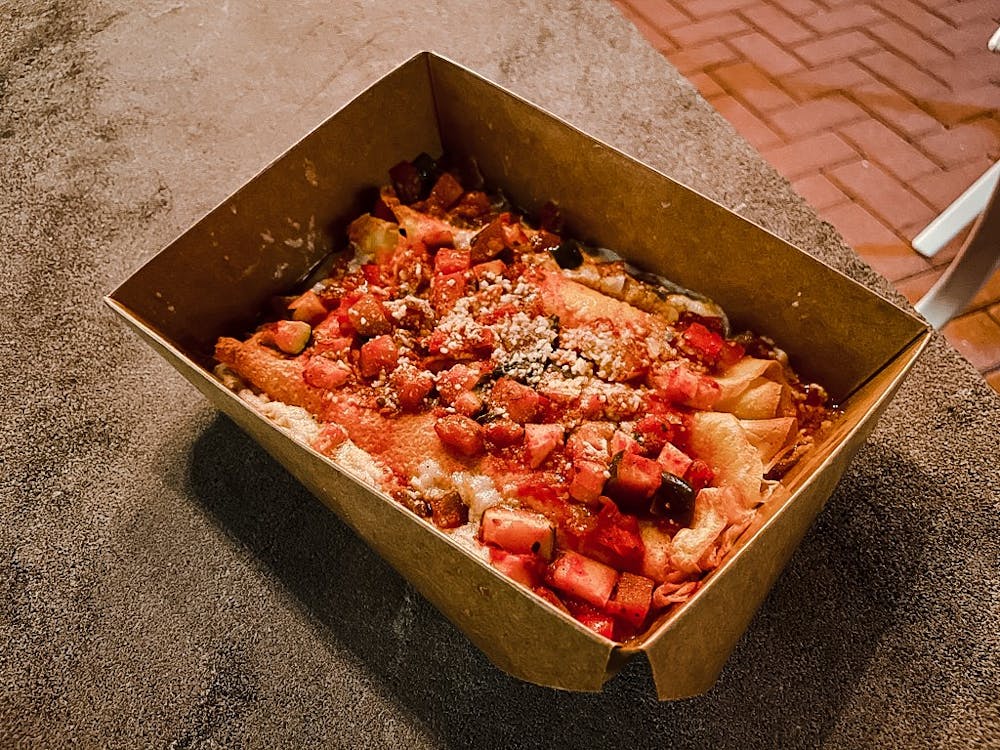
Francis Cretarola and Catherine Lee, who own Le Virtù, are advocates for workers’ rights, for the undocumented, and for progressive causes all told. In writing, Cretarola has interpreted Italian American history as being part of working–class immigrant history, and both Cretarola and Lee argued for safe, worker–focused practices in the restaurant industry during the pandemic. Their courtyard on Passyunk Avenue is one of the most tranquil spots in all of Philadelphia, and the scripelle—soft crepes filled with ricotta and a mix of zucchini, eggplant, peppers, and onions—has been one of the most sustaining dishes in one of the most difficult times facing our city.
Location: 1927 E. Passyunk Ave.
Hours: Mon. — Thurs. 5 p.m. — 10 p.m. ; Fri. 5 p.m. — 10:30 p.m. ; Sat. 4 p.m. — 10:30 p.m. ; Sun. 11 a.m. — 2 p.m. and 4 — 9:00 p.m.
Tamalex
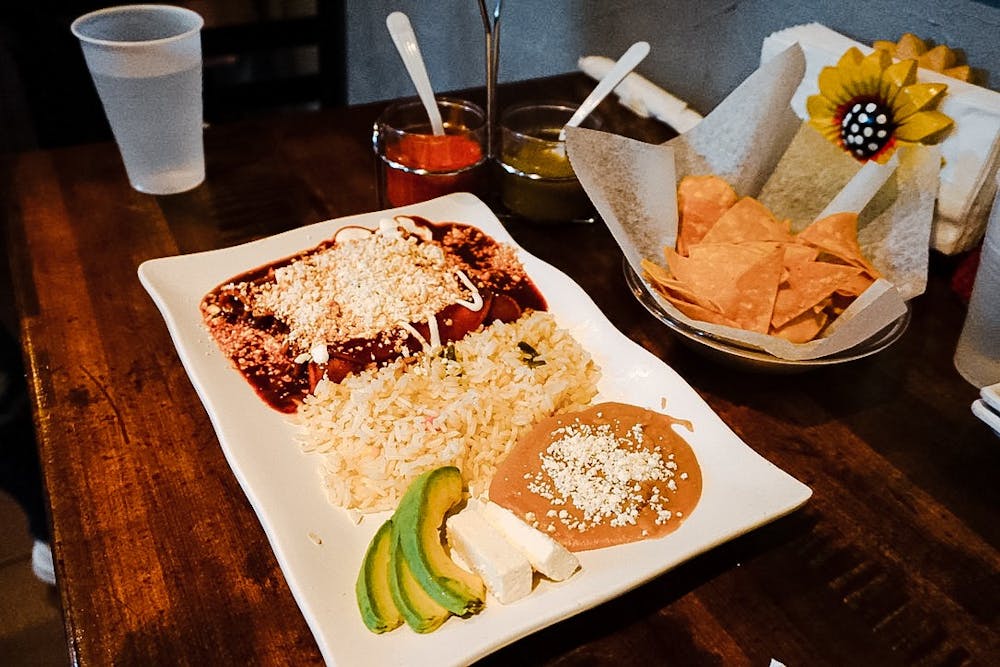
Tamalex offers superb Honduran pupusas—warm pockets of beans and cheese, topped with a spicy coleslaw and a tomato salsa—and sublime, earthy, uncompromisingly spicy enchiladas rojas that I eat any time of day. We ordered regularly from here throughout the pandemic, and workers at Tamalex joined an effort to provide food donations to immigrant families, who were among the hardest hit [from COVID–19] and [were] otherwise left out of federal relief efforts. They hold that corner of 7th and Federal streets—and South Philadelphia more generally—like an anchor.
Location: 1163 S. 7th St.
Hours: 10 a.m. — 11 p.m. daily
Kalaya
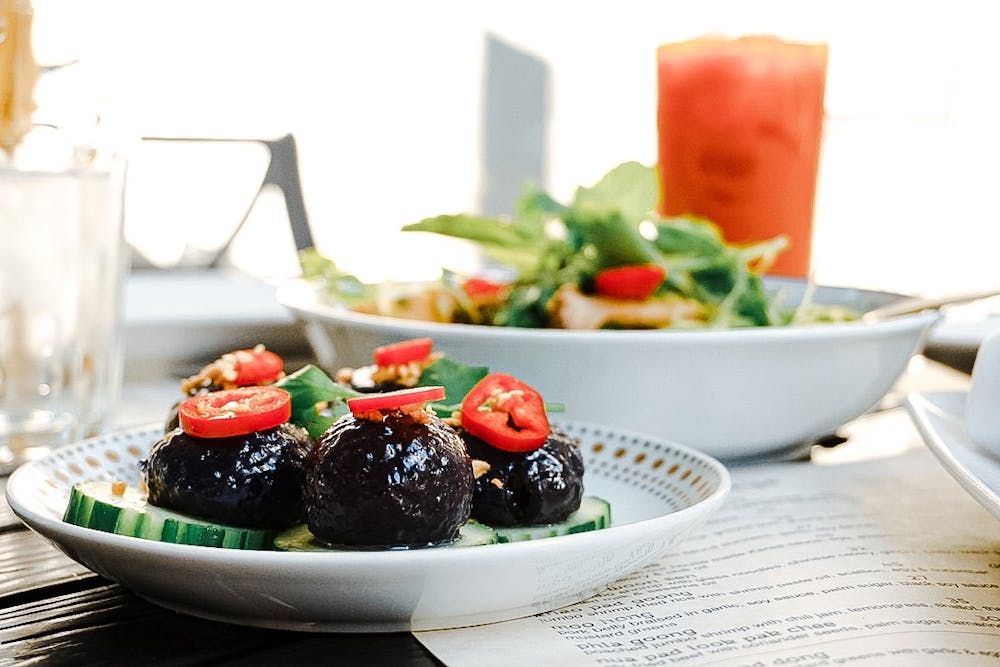
I knew Nok, the chef at Kalaya, back when she was catering, and the idea of opening a restaurant was still just an idea. One of the most sparkling presences in Philadelphia and easily the best dressed, Nok is also a genius, and at Kalaya she holds fast to cooking food that she knows, refusing to soften or lessen powerful spice levels for cautious palates.
Having overcome the challenge of all immigrant restaurants—the extent to which one is free to cook one’s own food—this restaurant has emerged as one of the city’s indelible establishments. During the pandemic, Nok made it possible for restaurant workers to eat for free and delivered meals to frontline health care workers throughout the city. Together, we fed several dozen nursing home workers at St. Monica’s in South Philadelphia, when they were enduring incredible hardships and had voted to authorize a strike. I couldn’t imagine Philadelphia without Kalaya and without her.
Location: 764 S. 9th St.
Hours: Mon. — Fri. 5 p.m. — 9 p.m. ; Sat. — Sun. 4 p.m. — 9 p.m.
